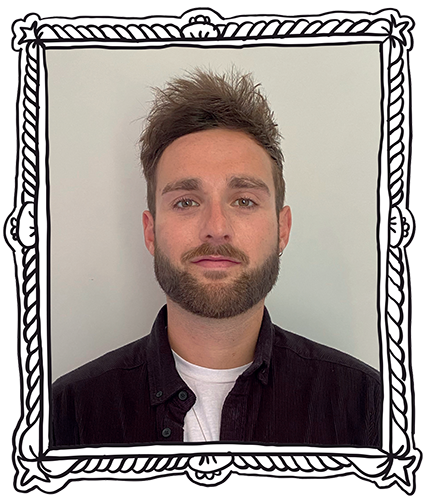Sean Finch, team leader and senior LGBT+ policy adviser, Government Equalities Office, Manchester
When and why did you join the civil service?
 I joined the civil service three years ago. Prior to that, I was working for an education charity called Ambition Institute, and before that I was a teacher as part of the Teach First programme.
I joined the civil service three years ago. Prior to that, I was working for an education charity called Ambition Institute, and before that I was a teacher as part of the Teach First programme.
In those previous roles, it became pretty obvious from my own experiences that being authentic about your identity, sexuality or your gender identity wasn’t something that was just a given, nor was it easy to do. I particularly understood that, in the context of being a teacher, it can be difficult to be your authentic self with all the other staff members. So during my time in the education charity I supported a couple of colleagues to set up LGBTed, which is a teacher-led network for LGBT+ teachers. On the back of that, when I saw the role in the LGBT+ team in the Government Equalities Office come up, it seemed like a perfect opportunity to influence public policy on a wider scale and continue that mission towards making people feel comfortable and safe at work – in whatever sector.
Tell us more about your job and how it helps citizens
I’ve worked on a series of different policy portfolios from education – where I was the programme manager for anti homophobic, biphobic and transphobic bullying in schools – to heading up data and monitoring, so working with the ONS on the tail-end of the introduction of the sexual orientation and gender identity questions in the census. Most recently, I’ve been part of the Safe To Be Me LGBT+ conference team, which was cancelled on the back of the conversion therapy issues.
So my work is about helping bring about a safer, more equal and inclusive society, but also to come up with solutions to some of the most pressing issues based on sexual orientation or gender identity. Whether that be in the workplace, in an education setting, or just people being able to lead their day-to-day lives.
"In previous roles, it became pretty obvious from my own experiences that being authentic about your identity, sexuality or your gender identity wasn’t just a given"
How do you approach these policy challenges – what techniques do you use?
We do a lot of listening. The LGBT+ community is not a homogenous one. It’s completely diverse within itself, including in terms of how sexual orientation or gender identity intersect with, for example, your race or religion. There are so many different factors at play that create a unique experience for people. So listening is really important.
We also make sure that we’re working with the third sector, those people that are providing the frontline services for LGBT+ people, and hearing from them about the most pressing issues facing people and then using that as part of our wider evidence-gathering. It’s vital for us that all our policy is grounded in evidence.
Our work often requires creative thinking in terms of policy solutions, for example seeing what’s worked for other minority groups across government and exploring if there’s anything that we can take from there.
Collaborating with other government departments is a key part of what we do, too. The GEO is there to provide expertise on equalities to other departments, so we work with them to make sure that any policy that they introduce considers the implications for LGBT+ people.